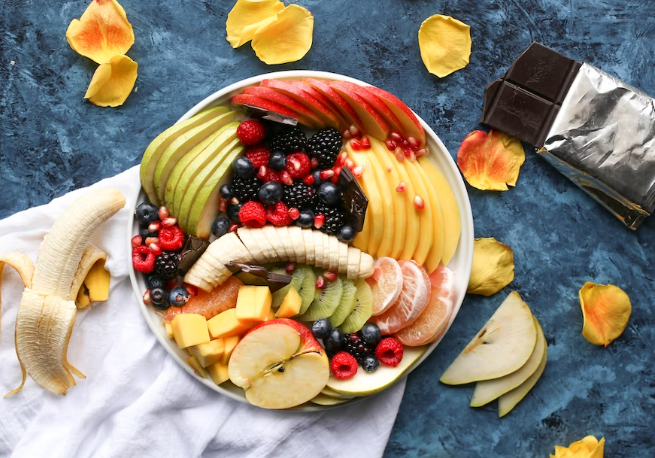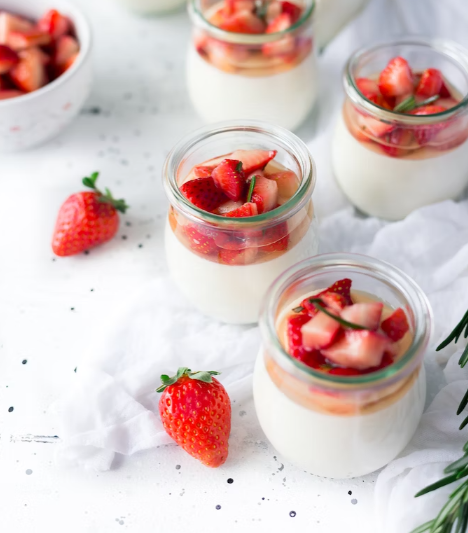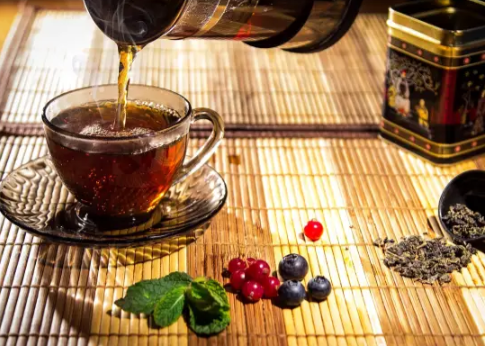It is often said that the appearance of the skin predicts overall health. Historically, deficiencies in many essential nutrients have been discovered by observing disruptions in skin integrity or changes in the appearance of the skin.
The bold saying “not commensurate with age” may actually reflect a person’s overall health. Balanced nutrition is essential not only to prevent heart disease or diabetes, but also to maintain healthy skin.

Many nutrients are important cofactors involved in the biochemical processes that occur within the skin cells, so deficiencies manifest themselves through changes in the appearance of the skin.
Antioxidant
Ultraviolet radiation (mainly from the sun) is the main cause of skin aging. Both UV-A and UV-B rays can produce harmful free radicals in the skin, causing photodamage, leading to fine lines and wrinkles, and, in extreme cases, sunburn and cancer. When sunscreen is not used, the skin relies only on melanin to resist.
Antioxidants can help prevent free radical formation caused by UV radiation. Studies have shown that the nutrients most effective in reducing UV damage to the skin include carotenoids, vitamin E, flavonoids, vitamin C, and N-fatty acids.
1. Vitamin C
Vitamin C is an important cofactor in collagen synthesis and also plays a role in skin regeneration and wound healing. It has been reported to reduce the appearance of wrinkles and dry skin.
Taking vitamin C and E supplements for three months significantly reduced sunburn reactions and skin DNA damage caused by UV-B exposure.
Best Food Sources of Vitamin C:
- orange
- tomato
- potato
- broccoli
- cabbage
- Brussels sprouts
- Strawberry
2. Vitamin E (tocopherol)
Vitamin E is a fat-soluble antioxidant. It protects the skin from free radical damage. Studies have shown that vitamin E supplementation reduces levels of malondialdehyde (MDA, a marker of oxidative stress) in the skin after exposure to ultraviolet light.
Vitamin E also plays a role in skin healing. One study involving 57 patients with pressure ulcers reported that 400 mg of vitamin E orally per day promoted faster healing than placebo.
Best Food Sources of Vitamin E:
- Polyunsaturated oil
- Polyunsaturated margarine
- nut
- olive oil
- Fatty fish
3.β-Carotene
β-Carotene can be used as a source of vitamin A, which is important for skin care and repair. Several studies support the use of carotene to improve skin health.
β-Best Food Sources of Carotene:
- carrot
- spinach
- pumpkin
- apricot
- broccoli
- tomato
- hami melon
4. Lycopene
When exposed to sunlight, lycopene in the skin is depleted. One study showed that taking lycopene-rich ketchup for 10 weeks prevented redness (erythema) on the skin after UV exposure.
Best Food Sources of Lycopene:
- Tomatoes and tomato products
- guava
- Watermelon
- Pink grapefruit

5. Lutein/zeaxanthin (LZ)
LZ supplementation can reduce UV damage to the skin and increase skin hydration and elasticity.
Best Food Sources of Lutein/Zeaxanthin:
- Dark, leafy, green and yellow vegetables
- yolk
6. Astaxanthin
Astaxanthin improves elasticity, moisture content and reduces the appearance of wrinkles.
The carotenoid astaxanthin is found in plants and algae. It gives shellfish and salmon a pinkish-orange color. Astaxanthin supplementation can significantly improve existing skin wrinkles and improve skin elasticity and transcutaneous water loss.
Subjects taking astaxanthin and vitamin E experienced a significant reduction in fine lines and acne and an increase in hydration levels after 4 weeks of treatment.
Best food sources of astaxanthin:
- shrimp
- crab
- Red trout
- salmon
7. Coenzyme Q10
It is an important antioxidant necessary for energy metabolism.
Supplementing with 60 mg of CoQ10 for three months significantly reduces wrinkle depth and area and improves skin characteristics.
Best Food Sources of Coenzyme Q10:
- liver
- Beef
- spinach
- broccoli
- cauliflower
8.Alpha-Lipoic acid
It is also an antioxidant that has been shown to reduce advanced glycation end products (AGE). AGE makes the skin prone to premature aging.
Best Food Sources of α-Lipoic Acid:
- spinach
- broccoli
- yam
- potato
- yeast
- tomato
- Visceral meat
- Brussels sprouts
- turnip
- beet
- rice bran

Fish Oil/Omega-3 Fatty Acids
9. Eicosapentaenoic Acid (EPA) and Docosahexaenoic Acid (DHA)
Dietary intake of fish oil is important for the treatment of inflammatory skin diseases. Some studies have shown that consuming 3 grams of EPA and DHA per day can reduce erythema (i.e., redness of the skin) that occurs during UV exposure.
Polyphenols and flavonoids
10. Green Tea Polyphenols
Polyphenols protect the skin from free radicals through UV damage. In one study, 41 women took 300 mg of green tea extract twice daily for two years. Compared to other controls, these women had fewer wrinkles and telangiectasias and less UV damage overall.
11. Flavonoids
Cocoa supplements/cocoa drinks containing high doses of flavonols (329 mg in the study) increased microcirculation, skin thickness, skin density, and skin hydration while significantly reducing skin roughness and scale.
Soy isoflavones can also significantly improve fine lines and skin elasticity.
12. Grape seed extract and resveratrol
Reduces erythema and increases skin hydration.
13. Pycnogenol
Pycnogenol is a patented extract of marine pine bark (Pinus pinaster). It contains proanthocyanidins and flavonoids. Most anti-aging products contain Pycnogenol. It reduces free radicals and improves skin hydration and skin elasticity.
Minerals
14. Zinc
Zinc is an important cofactor for many enzymes in the body. Some of the most well-known enzymes are important for skin healing. Its deficiency can lead to poor wound healing.
Best Food Sources of Zinc:
- Oysters
- meat
- fish
- chicken
- egg
- Whole grain cereals
- peanut
15. Copper
Copper is an important cofactor in elastin, the supporting structure of the skin.
Copper-rich foods:
- entrails
- nut
- sunflower seed
- chocolate
- shellfish
- almond
- Dried apricots
- asparagus
16. Selenium
Selenium is a component of the antioxidant enzyme, glutathione peroxidase. In this way, selenium protects the skin from UV damage. [12]
Best Food Sources of Selenium:
- brazil nut
- yellowfin tuna
- sardine
- egg
- Beef liver
- chicken
- spinach